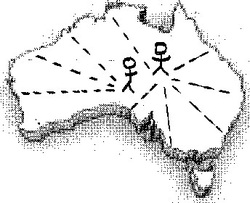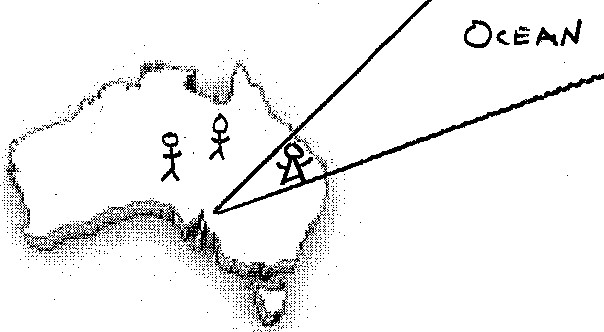To get you started, here is the conversation with Dr. Schulz about Wittgenstein:
Here's some information about the man Wittgenstein:
Ludwig Josef Johann Wittgenstein (/ˈvɪtɡənˌstaɪn/; German: [ˈvɪtgənˌʃtaɪn]; 26 April 1889 – 29 April 1951) was an Austrian-British philosopher who worked primarily in logic, the philosophy of mathematics, the philosophy of mind, and the philosophy of language. From 1929 to 1947, Wittgenstein taught at the University of Cambridge. During his lifetime he published just one slim book, the 75-page Tractatus Logico-Philosophicus (1921), one article, one book review and a children's dictionary. His voluminous manuscripts were edited and published posthumously. Philosophical Investigations appeared as a book in 1953, and has since come to be recognised as one of the most important works of philosophy in the twentieth century. His teacher Bertrand Russell described Wittgenstein as "the most perfect example I have ever known of genius as traditionally conceived; passionate, profound, intense, and dominating."
[You may be interested in the particular quotes from Wittgenstein in the Faith section of this Wikipedia article.]
-- accessed March 2016 at https://en.wikipedia.org/wiki/Ludwig_Wittgenstein
Here are some excerpts of the Tractatus, annotated by Dr. Schulz:
Here are Dr. Schulz's thoughts on engaging the text:
(a) We are concerned with Wittgenstein’s Tractatus, so please be sure to read this compact masterpiece (described as “a philosophical poem” in Wittgenstein’s published obituary) for yourself. Paperback copies are widely available, many with side-by-side pages of Wittgenstein’s German text and pages of English translation.
There is a readable English translation with an editorial introduction available as a PDF download at www.gutenberg.org/files/5740/5740-pdf.pdf
A good side-by-side German-English version is available as a PDF download at www.people.umass.edu/phil335-klement-2/tlp/tlp-ebook.pdf
I’ve included my own annotated version of the first and last sentences or propositions of Tractatus along with the fuller context of Proposition 6 for you on pages 5-10 below. Please give at least these portions of Tractatus a reading and then a careful re-reading!
(b) Wittgenstein is sometimes (but not often enough, in my view!) studied and discussed as a heavyweight opponent of scientism, the theoretical and practical supposition that only knowledge gained by the scientific method counts as genuine knowledge. As I present Wittgenstein’s text in class, scientism as promulgated by the Logical Positivists (aka the Vienna Circle) particularly irked him for philosophical reasons. These philosophical reasons for not agreeing that only scientifically-held knowledge counts for us are elucidated in the Tractatus, for example in its first proposition and in its last proposition.
(c) Here then is Wittgenstein’s Rule for When to Speak and When to Remain Silent. We could think of this as “Wittgenstein’s When to Shut-Up Principle”, if we were not sophisticated, philosophy-minded folks:
1. The world is everything that is the case. (Die Welt is alles, was der Fall ist, German.)
[***]
7. Whereof one cannot speak, thereof one must be silent. (Wovon man nicht sprechen kann, daruber muss man schweigen, German.)
Wittgenstein’s Shut-Up Rule in Tractatus 7 is not, however, an epistemological gag order. It is not his final word on what we can say under any and all circumstances, only on what we can say scientifically. Let’s think about this epistemological boundary matter from ground level this way:
Key
The task is to map the Ocean by walking the island
The Ocean represents God; the island’s coast represents the field and the limit of our thinking
Key
The task is to map the Ocean by walking the island
The Ocean represents God; the island’s coast represents the field and the limit of our thinking
Mapping the Ocean by Walking the Island – The Limit to Expressions of Human Thinking Alone
(Or, Drawing a Limit to the Expression of Thought) – re Tractatus Preface from Wittgenstein's letters
(Or, Drawing a Limit to the Expression of Thought) – re Tractatus Preface from Wittgenstein's letters
Mapping the Ocean by Walking the Island – The Limit to Human Thinking if the Ocean Comes to Us
(Or, Drawing a Limit to the Expression of Thought when revelation is a given) – re Tractatus Preface from Wittgenstein's letters with my addition of what is the case given the Incarnation and biblical revelation, GPS)
My work consists of two parts: the one presented here plus all that I have not written. And it is precisely this second part that is the important one. (Wittgenstein, Letter to Ludwig Ficker of circa September October 1919)
When he nevertheless takes immense pains to delimit [i.e. mark "the limits of language"] the unimportant [the first part, i.e. logic and "what can be put into words"], it is not the coastline of that island [i.e. the first part] which he is bent on surveying with such meticulous accuracy, but [instead] the boundary of the ocean [the second part: the mystical]. (Engelmann, Memoir, tr. Furtmtiller, McGuinness)
from http:l/www .roangelo.netllogwitt/
So, Wittgenstein in effect provides a via negativa philosophical argument to clear the decks for biblical revelation by demonstrating what thinking alone cannot accomplish – and what it cannot rule out.
As the apostle Paul puts it,
from http:l/www .roangelo.netllogwitt/
So, Wittgenstein in effect provides a via negativa philosophical argument to clear the decks for biblical revelation by demonstrating what thinking alone cannot accomplish – and what it cannot rule out.
As the apostle Paul puts it,
But, as it is written, “What no eye has seen, nor ear heard, nor the heart of man imagined, what God has prepared for those who love him”— these things God has revealed to us through the Spirit. For the Spirit searches everything, even the depths of God (1 Corinthians 2:9-10).



 RSS Feed
RSS Feed
